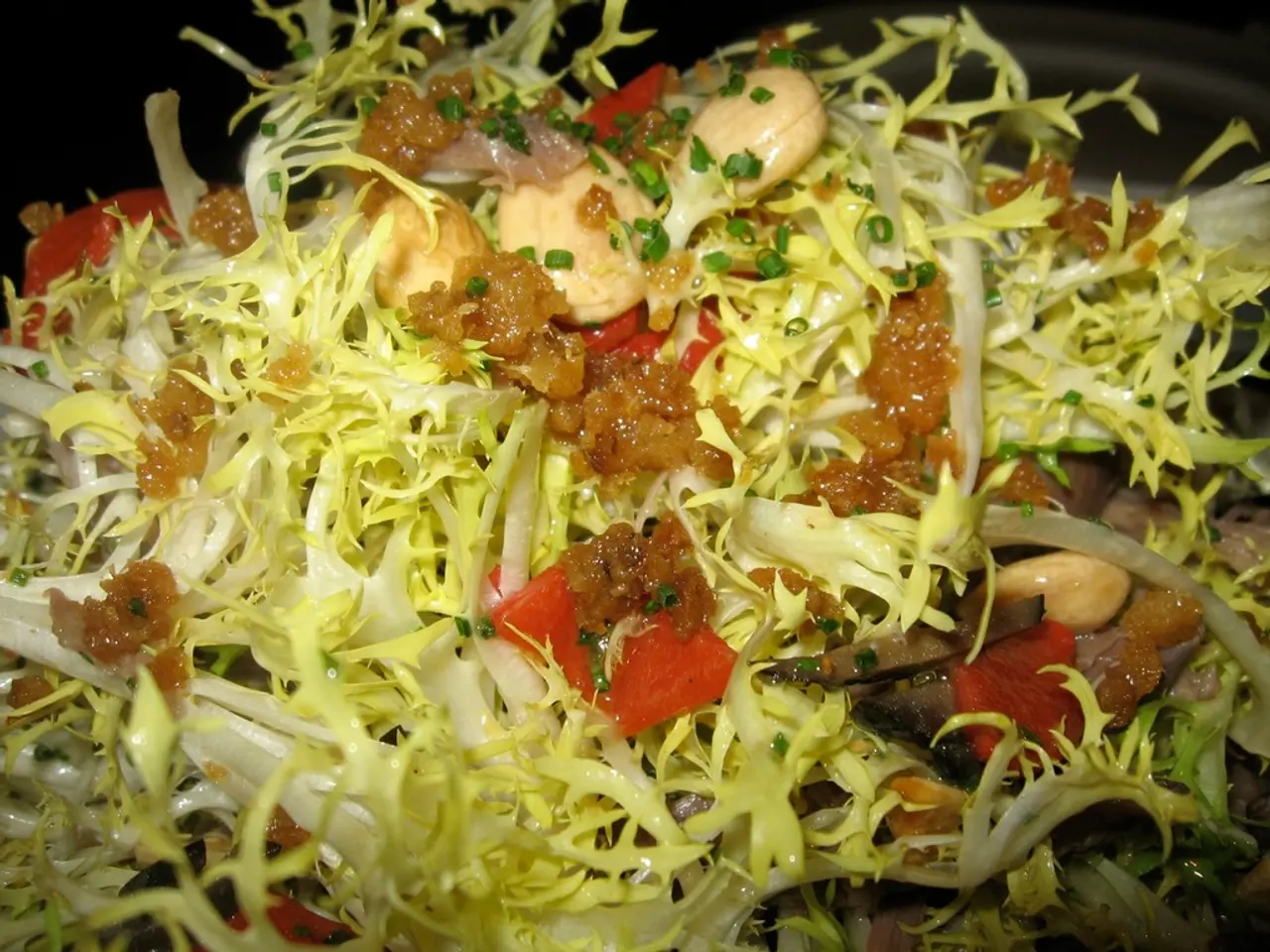Admonition on the Risks of Consuming Overly Fried Pork: A Permanent Caution
In the spirit of summer picnics, it's essential to be mindful of the potential risks associated with popular picnic foods like shashlik (skewered grilled meat). Common foodborne pathogens, such as salmonella, Campylobacter, E. coli, listeria, norovirus, and toxoplasmosis, can thrive in warm weather and pose a higher risk for food poisoning during picnics.
Key risks with shashlik and similar picnic meats include improper storage, handling, and cooking methods. Meat can easily become contaminated by bacteria if not kept separate from other foods, stored properly, or cooked to the right temperature. Flies, unwashed hands, and cross-contaminated utensils may introduce harmful microbes. High temperatures at picnics also promote rapid bacterial growth in meat, eggs, dairy, and salads.
To ensure shashlik safety, it's crucial to cook meat thoroughly. The minimum internal temperatures for cooked poultry, beef, and pork are 75°C, 70°C, and 70°C respectively, as determined by a food thermometer. Properly cooked shashlik should have no blood, evenly colored juice, and a stable aroma of cooked meat.
Good hygiene practices are also essential. Before cooking shashlik, hands should be thoroughly washed, and separate utensils should be used for raw and cooked products. Storing perishable foods in coolers or refrigerators at safe temperatures, ideally below 40°F (4°C), and never leaving food out for more than two hours—or one hour if temperature exceeds 90°F (32°C)—can help prevent bacterial growth.
Special considerations should be made for vulnerable groups, such as children under 5, elderly people, pregnant women, and those with weakened immune systems, who are at higher risk of serious illness from contaminated picnic foods.
In addition to shashlik, other picnic foods like fish, dairy products, and undercooked pork can carry listeria, which is particularly dangerous for pregnant women and those with weakened immune systems. At large picnics, improper storage, shared cutting boards, or dirty hands can allow viral infections like norovirus and rotavirus to spread.
Trichinellosis, transmitted through wild animal meat and undercooked pork, is another concern. Symptoms of this infection include nausea, sharp or cramping abdominal pain, diarrhea, or fever. Toxoplasmosis, transmitted through poorly cooked pork and lamb, can cause severe gastrointestinal poisoning with vomiting and diarrhea, especially in those with weakened immune systems.
If symptoms such as these appear after a picnic, it's crucial to consult a doctor immediately. By following these guidelines for proper cooking, hygienic handling, effective refrigeration, and timely consumption, picnic goers can enjoy their meals safely and healthily.
- Incorporating science and health-and-wellness, it's important to ensure that the meat used for shashlik and other picnic foods is cooked thoroughly to kill foodborne pathogens like salmonella and E. coli.
- For medical-conditions, some individuals, such as pregnant women, children under 5, elderly people, and those with weakened immune systems, should be particularly mindful of contaminated picnic foods to avoid serious illness.
- Maintaining a lifestyle of food-and-drink safety involves good hygiene practices like washing hands before preparing shashlik and using separate utensils for raw and cooked products.
- Fitness-and-exercise enthusiasts can also contribute to health-and-wellness during picnics by adhering to safe food storage practices and consuming picnic foods promptly to prevent bacterial growth and foodborne illness.




